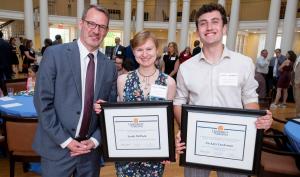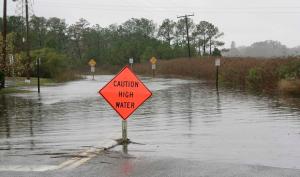Garrick Louis

About
Garrick Louis is Professor of Engineering and Society (E&S), and Professor of Systems & Information Engineering (SIE) the University of Virginia. His research investigates Engineering for the Greater Good (EGG) with an emphasis on access to infrastructure services across different communities. Louis uses mutual benefit approaches to broaden participation in Science, Technology, Engineering, and Math (STEM) education. Louis has a BSc. In Chemical Engineering from Howard University, MSc. in Chemical Engineering from Rensselaer Polytechnic Institute, and a PhD in Engineering and Public Policy from Carnegie Mellon University. He received the 2000 Presidential Early Career Award for Scientists and Engineers from the National Science Foundation, is a 2006-7 AAAS Energy Environment and Natural Resources Fellow, a 2014 Design and Health Faculty Fellow at the University of Virginia, and a 2015 Jefferson Science Fellow as Science Advisor to the Office of Global Food Security at the U.S. Department of State. Louis is a Fulbright Specialist in Environment & Development, co-lead of UVA’s Resilient Urban Water Systems Working Group, and Director of the Small Infrastructure and Development (SID) Center. Louis chairs the Editorial Board of the Online Ethics Center and is the treasurer of the National Sustainability Society. Louis received the 2022 John T. Casteen Leadership Award and the 2024 Excellence in Public Service Award from the University of Virginia.
Education
B.S. Chemical Engineering, Howard University, 1983
M.S. Chemical Engineering, Rensselaer Polytechnic Institute, 1985
Ph.D. Engineering and Public Policy, Carnegie Mellon University, 1996
Post-Doc Green Design Institute, Carnegie Institute of Technology, Carnegie Mellon University, 1996-1997
Poverty is the incapacity to achieve one’s human potential within the era and society in which one lives. My research seeks to build capacity for sustained access to essential human services, with special focus on people in marginalized communities.” I define sustainability as “the ability to provide sustained access to services at the required quantity and quality over the required planning horizon at minimal economic, environmental, and social cost to present and future generations.

